detail profile ninetto davoli

Ninetto Davoli
Giovanni Davoli
atau dikenal sebagai
Riwayat Hidup
From Wikipedia, the free encyclopedia.
Ninetto Davoli (born 11 October 1948 as Giovanni Davoli) is an Italian actor who became known through his roles in several of Pier Paolo Pasolini's films.
Description above from the Wikipedia article Ninetto Davoli, licensed under CC-BY-SA, full list of contributors on Wikipedia.
Info Pribadi
Peran Yang Di Mainkan Ninetto Davoli
 We are with Pasolini during the...
We are with Pasolini during the...Pasolini 2014
We are with Pasolini during the last hours of his life, as he talks with his beloved family and friends, writes, gives a brutally honest interview, shares a meal with Ninetto Davoli, and cruises for the roughest rough trade in his gun-metal gray Alfa Romeo. Over the course of the action, Pasolini’s life and his art are constantly refracted and intermingled to the point where they become one.
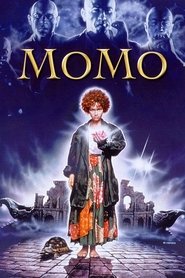 Momo is a young orphan girl...
Momo is a young orphan girl...Momo 1986
Momo is a young orphan girl who lives in the ruins of an old Roman amphitheater and becomes friends with everybody in the neighborhood. But when a powerful international corporation starts stealing everybody’s time, nobody has any time left for her, let alone their friends or families. Momo, together with Master Hora, the custodian of time, are the only ones who can go up against the time thieves before all is lost forever.
 Theres a new girl in school...
Theres a new girl in school...How to Seduce Your Teacher 1979
There's a new girl in school, Angela, the Headmaster's neice. Every male will try to seduce her, even her uncle. Meanwhile she will drive the philosophy's teacher mad and her best friend Irma will have a good time with the classmates. Will they get the grades?
 Summer Sunday at a small beach...
Summer Sunday at a small beach...Beach House 1977
Summer Sunday at a small beach house at the coast of Rome. Many people and stories: women's basketball team, two sports-obsessed soldiers, two men with their girlfriends and the priest with a big secret, an elderly couple with their pregnant granddaughter, and engagemented couple wanting to have sex for the first time.
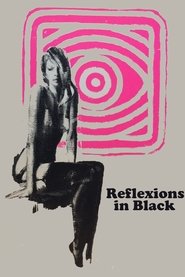 A woman dressed in black is...
A woman dressed in black is...Reflections in Black 1975
A woman dressed in black is murdering young women. The police question lawyer Anselmi for whom one of the girls worked as a secretary, and it turns out that all the victims were friends of lawyer's wife Leonora.
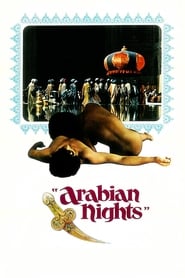 The final part of Pasolinis Trilogy...
The final part of Pasolinis Trilogy...Arabian Nights 1974
The final part of Pasolini's Trilogy of Life series is rich with exotic tales of slaves and kings, potions, betrayals, demons and, most of all, love and lovemaking in all its myriad forms. Mysterious and liberating, this is an exquisitely dreamlike and adult interpretation of the original folk tales.
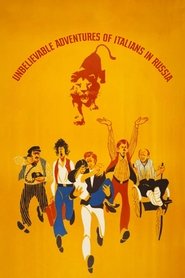 In Italy a dying woman tells...
In Italy a dying woman tells...Unbelievable Adventures of Italians in Russia 1974
In Italy, a dying woman tells her granddaughter that she hid her treasure many years ago in Russia, in the city of Leningrad. Other people (who were around when she died) also learn about it. Thus several people arrive in Leningrad trying to find the treasure, each one for himself/herself. What's worse - the only information they have is that the treasure is under a lion - and it's in Leningrad, a city known by its numerous statues of lions. The story gets even more interesting when the soviet militia (police) learns about the whole thing and send an undercover agent...
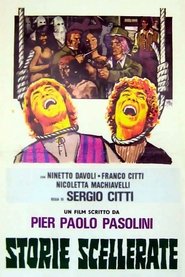 Locked up in prison and awaiting...
Locked up in prison and awaiting...Bawdy Tales 1973
Locked up in prison and awaiting execution, bored young vagabonds Bernardino and Mammone pass their time competing in a vulgar storytelling competition, relating indecent accounts about castration, unsavory testicles and an atypical threesome. Not intended for the faint of heart, this audacious piece of moviemaking focuses on tales of jealousy, murder and uncontrollable desires.
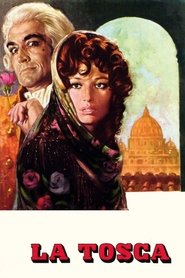 Rome 1800 Napoleon threatens the power of...
Rome 1800 Napoleon threatens the power of...La Tosca 1973
Rome, 1800. Napoleon threatens the power of the Church and executions of Jacobins are constant. Angelotti, the most famous of them all has escaped from prison and the chief of police is on his tail. Angelotti is being helped by a painter, lover of "La Tosca", a famous singer. The police chief suspects the truth and tries to arouse the jealousy of "La Tosca" to catch the escapee.
 A young Sicilian is swindled twice...
A young Sicilian is swindled twice...The Decameron 1971
A young Sicilian is swindled twice, but ends up rich; a man poses as a deaf-mute in a convent of curious nuns; a woman must hide her lover when her husband comes home early; a scoundrel fools a priest on his deathbed; three brothers take revenge on their sister's lover; a young girl sleeps on the roof to meet her boyfriend at night; a group of painters wait for inspiration; a crafty priest attempts to seduce his friend's wife; and two friends make a pact to find out what happens after death.
 Two dramatic stories In an undetermined...
Two dramatic stories In an undetermined...Pigsty 1969
Two dramatic stories. In an undetermined past, a young cannibal (who killed his own father) is condemned to be torn to pieces by some wild beasts. In the second story, Julian, the young son of a post-war German industrialist, is on the way to lie down with his farm's pigs, because he doesn't like human relationships.
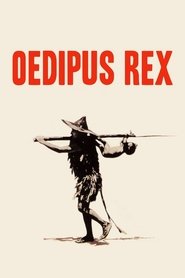 In prewar Italy a young couple...
In prewar Italy a young couple...Oedipus Rex 1967
In pre-war Italy, a young couple have a baby boy. The father, however, is jealous of his son - and the scene moves to antiquity, where the baby is taken into the desert to be killed. He is rescued, given the name Edipo (Oedipus), and brought up by the King and Queen of Corinth as their son. One day an oracle informs Edipo that he is destined to kill his father and marry his mother. Horrified, he flees Corinth and his supposed parents - only to get into a fight and kill an older man on the road…
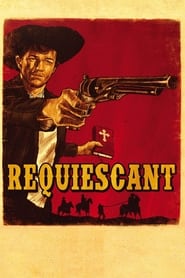 A Mexican community is slaughtered by...
A Mexican community is slaughtered by...Kill and Pray 1967
A Mexican community is slaughtered by Confederate troops; the lone survivor, a boy, is taken in by a preacher. Years later, the boy is now a soft-spoken, devout young man with perfect shooting skills (despite being a pacifist). On his journey to help his half-sister out of a complicated situation, he crosses paths with the men who killed his family, unbeknownst to him.
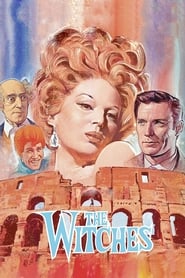 Five short stories loosely dealing with...
Five short stories loosely dealing with...The Witches 1967
Five short stories loosely dealing with the roles of women in society. A superstar actress travels to a mountain resort, only to evoke jealousy from women and lust from men. A woman offers to take an injured man to the hospital. A widowed father and his son seek for a new wife/mother. A man seeks revenge for a woman's honor. A bored housewife tries to explain to her husband that he's not as romantic as he used to be.
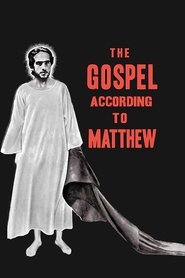 Along a rocky barren coastline Jesus...
Along a rocky barren coastline Jesus...The Gospel According to Matthew 1965
Along a rocky, barren coastline, Jesus begins teaching, primarily using parables. He attracts disciples; he's stern, brusque, and demanding. His parables often take on the powers that be, so he and his teachings come to the attention of the Pharisees, the chief priests, and elders. They conspire to have him arrested, beaten, tried, and crucified, just as he prophesied to his followers.
 Four stories focused on the fair...
Four stories focused on the fair... Two teenage friends conspire to find...
Two teenage friends conspire to find...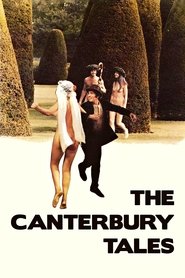 Glimpses of Chaucer penning his famous...
Glimpses of Chaucer penning his famous... A wealthy Italian household is turned...
A wealthy Italian household is turned... A man and his son take...
A man and his son take...